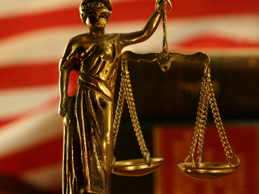25 N.Y.3d 30
New York Court of Appeals
Decided on March 31, 2015
Blog by: Stephen N. Preziosi Esq., Criminal Appeals Lawyer
The New York Court of Appeals Orders New Trial After Prompt Outcry Testimony
Issue: Whether defendant was denied a fair trial where the People used prompt outcry testimony despite the prosecutors pre-trial representation that no such testimony would be offered?
Summary: After a jury trial, defendant was convicted in the Supreme Court, Kings County, of rape in third degree (two counts), criminal sexual act in the third degree, endangering the welfare of a child, and sexual abuse in the third degree. He appealed arguing, among other things, that (1) he was denied effective assistance of counsel; and (2) the Supreme Court abused its discretion by refusing to declare a mistrial or to strike the surprise prompt outcry testimony elicited by the People in disregard of the prosecutors pre-trial representation that no such testimony would be offered. The Appellate Division, Second Department affirmed defendants judgment of conviction. The Court of Appeals granted defendant leave to appeal, reversed, and ordered a new trial
See Also: Batson Challenges: Deciphering Pre-Textual Reasons For Exclusion Based On Race
 Holding: The Court of Appeals held that the trial court abused its discretion by denying defendant a remedy for the unfair and prejudicial surprise by the People in using prompt outcry testimony despite the prosecutors pre-trial representation that no such testimony would be offered.
Holding: The Court of Appeals held that the trial court abused its discretion by denying defendant a remedy for the unfair and prejudicial surprise by the People in using prompt outcry testimony despite the prosecutors pre-trial representation that no such testimony would be offered.
Facts: Defendant was charged with multiple counts of statutory and non-consensual rape and other sex crimes, for allegedly engaging in sexual activity with the 16?year?old complainant when he was 23 years old. Complainant testified that, on the day of the alleged sexual assault, she and defendant?who she knew through her ex-boyfriend?went to an apartment in Brooklyn sometime between 8:00 p.m. and 9:00 p.m. While they were watching a movie, defendant began to kiss and grope her and, despite her protests and attempts to resist, allegedly raped her twice. Based on complainants testimony and cell phone records, the People claimed the alleged rapes occurred between 9:21 p.m. and 10:57 p.m.
At a pre-trial hearing, the People explicitly represented to the court and defense counsel that there would be no prompt outcry testimony, as complainant had not disclosed the sexual assault to anyone until at least six months after it allegedly happened. In response to the courts inquiry, defense counsel stated that the People have said that theres no prompt outcry, so I think that takes care of that issue. The court ruled that the People could present expert testimony about rape trauma syndrome if defendant attempted to impeach complainant based on her delayed disclosure.
In his opening statement to the jury, defense counsel?relying on the Peoples earlier representation-stated that
[t]he complaining witness is going to tell you that she was on the phone that night more than once?her mother, her friends, different people. She was on the phone, had access to her phone, but she didnt call 911, she didnt tell any of the people she was on the phone with … Youre going to hear about a long delay in her telling anybody about these accusations.
Thereafter, complainant testified on direct examination that she called a friend on her way home from the apartment that night, and told [her friend] what happened … [but] didnt tell her the whole story and didnt tell her [friend] that [she] didnt want [it] to happen. The People purposefully elicited this testimony and expected the complainant to testify that she told her friend she had engaged in sexual intercourse with defendant.
 Defense counsel objected and sought a mistrial or, alternatively, a ruling striking that portion of complainants testimony regarding the alleged conversation with her friend on the night of the alleged sexual assault. Defense counsel argued that such testimony was prompt outcry evidence, which the People had represented would not be introduced at trial. According to defense counsel, complainants testimony totally change[d][his] trial strategy as it would have changed voir dire, it would have changed [his] opening [statement]. The People characterized the testimony as a partial disclosure, claimed that it c[a]me to … light at the last minute, and argued that it did not prejudice defendant.
Defense counsel objected and sought a mistrial or, alternatively, a ruling striking that portion of complainants testimony regarding the alleged conversation with her friend on the night of the alleged sexual assault. Defense counsel argued that such testimony was prompt outcry evidence, which the People had represented would not be introduced at trial. According to defense counsel, complainants testimony totally change[d][his] trial strategy as it would have changed voir dire, it would have changed [his] opening [statement]. The People characterized the testimony as a partial disclosure, claimed that it c[a]me to … light at the last minute, and argued that it did not prejudice defendant.
The court concluded that the testimony described a prompt outcry, but denied defendants request for a mistrial and let the testimony stand, concluding that it was not an unfair surprise that unduly prejudice[d] … defendant. The court reasoned that the testimony was not overly prejudicial because the jury could find that complainant was incredible.
When the trial resumed, complainant testified that she fully disclosed the sexual assault to her brother-in-law and two administrators from her school some six months after it allegedly occurred. The People then presented an expert witness who explained that it was common to delay disclosure of a sexual assault especially to a trusted adult outside the nuclear family, as well as partially disclose to test the waters before fully disclosing the events. The People also introduced cell phone records, which confirmed that complainant spoke with her friend shortly after 11:00 p.m. on the evening of the alleged assault, consistent with complainants testimony that she called the friend on her way home from the apartment. Defense counsel attempted to discredit complainant to no avail.
After the close of proof and summations, the jury found defendant guilty of two counts of rape in the third degree (Penal Law 130.25[2]), criminal sexual act in the third degree (Penal Law 130.40[2]), sexual abuse in the third degree (Penal Law 130.55), and endangering the welfare of a child (Penal Law 260.10[1] ). However, the jury acquitted defendant of the remaining crimes charged, which were based on a theory of lack of consent by reason other than age.
Defendant appealed arguing, among other things, that (1) he was denied effective assistance of counsel; and (2) the Supreme Court abused its discretion by refusing to declare a mistrial or to strike the surprise prompt outcry testimony elicited by the People in disregard of the prosecutors pre-trial representation that no such testimony would be offered. The Appellate Division, Second Department affirmed defendants judgment of conviction. The Court of Appeals granted defendant leave to appeal, reversed, and ordered a new trial
Legal Analysis: Based on the record, the Court of Appeals found that the trial court abused its discretion when it denied defense counsels motion for a mistrial or to strike a portion of complainants testimony. The unanimous court recited the well-established admissibility balancing test applied to evidence deemed to be relevant: relevant evidence may be rejected if its probative value is outweighed by the danger that its admission creates a substantial danger of undue prejudice or causes an unfair surprise (People v. Cortez, 22 N.Y.3d 1061, 1079[2014]; People v. Davis, 43 N.Y.2d 17, 27[1977]). Here, the complainants testimony that she told her friend what happened conveyed to the jury that she had engaged in sexual intercourse with defendant that evening was clearly relevant. However, the People made pre-trial representations that complainant did not disclose the alleged rapes until months after they occurred, and therefore, no evidence would be presented on this point. Defense counsel relied upon these representations in shaping trial strategy, from voir dire to opening statements. Thus, complainants surprise testimony that she partially disclosed her accusations against defendant the same night as the alleged assaults was unfair and prejudicial. As described by the court, the surprise testimony eviscerated defense counsels credibility with the jury and irreparably undermined the trial strategy. Under the circumstances, defendant was denied a fair trial and the trial court abused its discretion by denying defendant a remedy for the unfair and prejudicial surprise (People v. Walker, 83 N.Y.2d 455, 458[1994]). Accordingly, the Court of Appeals reversed the Appellate Division decision and ordered a new trial. The court found no reason to decided defendants ineffective assistance of counsel claim in light of the decision ordering a new trial.
For background: The doctrine of “prompt outcry” permits the admission of evidence by the victim in a sex crime case to show that he or she promptly reported the crime to another person. It is admitted not as direct evidence, but rather as credibility evidence of a victim (People v. McDaniel, 81 NY2d 10, 16[1993]).

